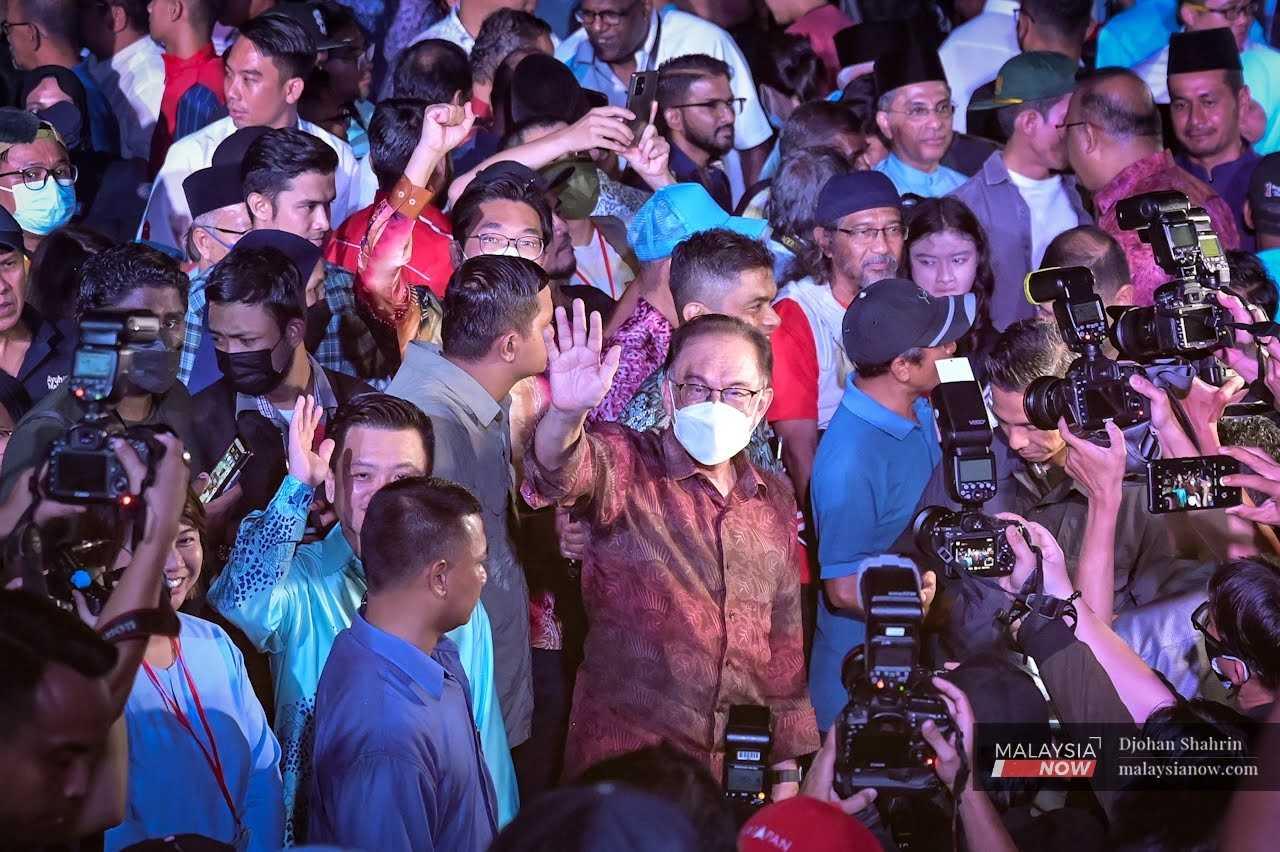Race and religion, Anwar's immediate challenges as PM
Analysts say the new prime minister will have to take steps to address the situation.
Just In
Analysts say Anwar Ibrahim will have his work cut out for him in dealing with the shift in Malay support towards Perikatan Nasional (PN) at the recent general election – a so-called "Malay tsunami" that could pose a significant challenge to the new government, even as the country moves away from the initial days of political deadlock which marked the aftermath of the polls.
There is also the related issue of racial and religious polorisation due to the emerging political alignments, with PAS president Abdul Hadi Awang accusing Pakatan Harapan (PH) component DAP of "Islamophobia".
DAP veteran Lim Kit Siang responded by calling Hadi a liar and accusing him in turn of trying to create "another Sheraton Move conspiracy" to topple the government of PH chairman Anwar.
Mujibu Abd Muis, an analyst from Universiti Teknologi Mara, said among Anwar's first steps to tackle the situation should be to control the Malay-Muslim narrative through his Cabinet composition, to reflect a unity government rather than one run by PH.
He said this would mean DAP keeping a low profile and Umno or Amanah handling Malay-related issues.
"Anwar has learnt his lesson from the 2020 collapse of the PH government due to the Malay-Muslim narrative where we witnessed the formation of the next government by Bersatu, Umno and PAS," Mujibu told MalaysiaNow.
"Anwar needs to show that this is a unity government, not a PH government."
Analyst Oh Ei Sun meanwhile said it was time for Amanah to build up its strength instead of depending on PKR and DAP.
Oh, of the Singapore Institute of International Affairs, said Amanah, as a PAS splinter, carried the image of PH's Islamic struggle but had so far received less support than other Malay parties.
He said this would make it difficult for Amanah to help Anwar in the face of conflicts involving race or religion.
"Amanah has its roots in PAS and is seen as moderate and professional, but it has been rejected by PAS and a big part of the Malay community," he said.
James Chin of Australia's University of Tasmania meanwhile said hardcore PAS supporters could be expected to monitor all of the government's movements.
However, he said they would not arbitrarily accuse it of being a "non-halal" administration.
"Anwar also has credibility in the Islamic world," he said.
"So those who support the opposition might adopt a wait-and-see approach. They know that another election or a change of government at this time would cause more political instability."
Subscribe to our newsletter
To be updated with all the latest news and analyses daily.
Most Read
No articles found.
